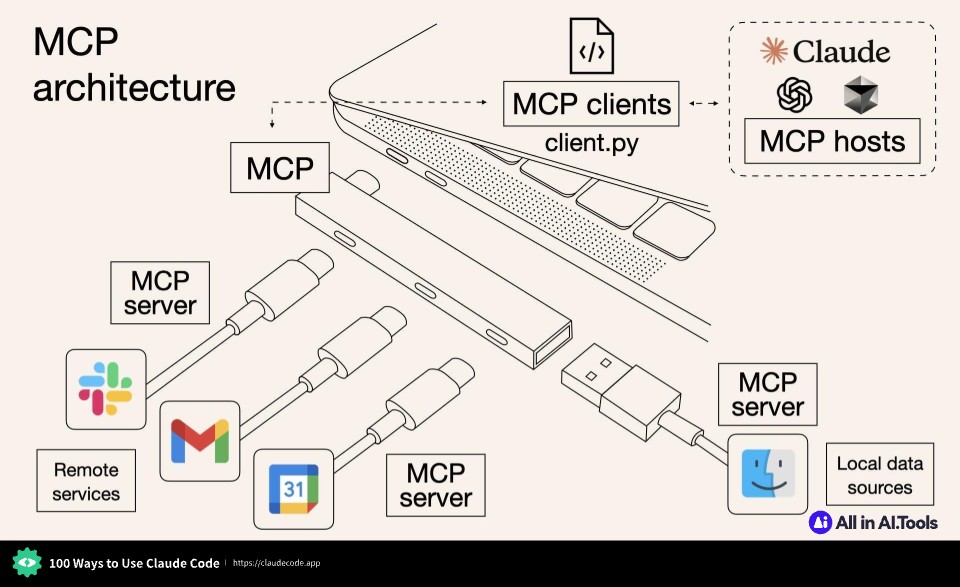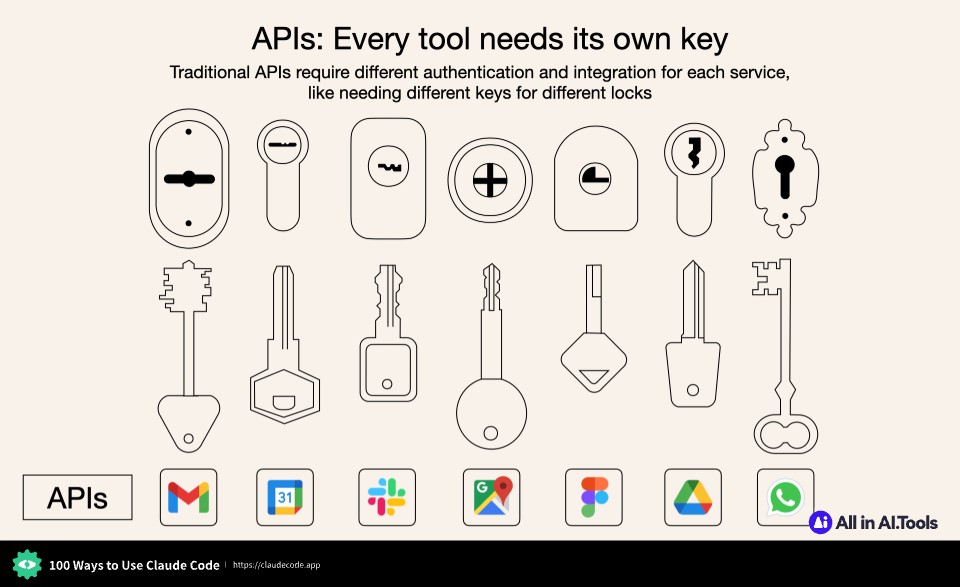Discover and integrate MCP servers to extend Claude's capabilities
An MCP server implementation for interacting with Safe (Gnosis Safe) smart contract wallets
Zotero MCP: Connects your Zotero research library with Claude and other AI assistants via the Model Context Protocol to discuss papers, get summaries, analyze citations, and more.
A Model Context Protocol (MCP) server for academic tools, integrating with Canvas and Gradescope platforms.
A podman ubuntu 24.04 container that serves a MCP server; with file, code execution, bash shell, and more.
mcp-1panel is an implementation of the Model Context Protocol (MCP) server for 1Panel.
An MCP for WireShark (tshark). Empower LLM's with realtime network traffic analysis capability
A TypeScript Model Context Protocol for Twitter/X platform integration.
This is a Model Context Protocol (MCP) server that provides professional cycling data from FirstCycling. It allows you to retrieve information about professional cyclists, race results, and more.
A Model Context Protocol server for interacting with Foundry
MCP server for AI image generation and editing using Google's Gemini Flash models. Create images from text prompts with intelligent filename generation and strict text exclusion. Supports text-to-image generation with future expansion to image editing capabilities.
A Model Context Protocol (MCP) server implementation for running Locust load tests. This server enables seamless integration of Locust load testing capabilities with AI-powered development environments.
✨ JMeter Meets AI Workflows: Introducing the JMeter MCP Server! 🤯
Agent Framework / shim to use Pydantic with LLMs
The definitive Vibe Coder's sanity check MCP server: Prevent cascading errors in AI workflows by implementing strategic pattern interrupts. Uses tool call "Vibe Check" with LearnLM 1.5 Pro (Gemini API), fine-tuned for pedagogy and metacognition to enhance complex workflow strategy, and prevents tunnel vision errors.
Unblock, scrape, and search tools for MCP clients
A TypeScript Model Context Protocol (MCP) server to allow LLMs to programmatically construct mind maps to explore an idea space, with enforced "metacognitive" self-reflection
PhonePi MCP enables seamless integration between desktop AI tools and your smartphone, providing 23+ direct actions including SMS messaging, phone calls, contact management, snippet creation and search, clipboard sharing, notifications, battery status checks, and remote device controls.
MCP Server for the GitHub Enterprise APIs, enabling file operations, repository management, search functionality, and more.
A Model Context Protocol (MCP) server that connects Claude and other AI assistants to your Roam Research graph.
MCP server for integrating Atlassian products (Confluence, Jira) with Model Context Protocol
A Model Context Protocol (MCP) for querying Lightning Network node data using natural language.
Tools for seamless integration of different systems and services.
Cloud infrastructure and deployment management tools.
AI-powered tools for creative design workflows across 3D and 2D mediums.
AI-powered tools for product development, design review, and performance monitoring.
Tools for monitoring, analytics, and operational efficiency.


Explore Claude Cowork, Anthropic's groundbreaking AI agent built on Claude Code foundations. Discover how it enables file access, document creation, and task automation for everyone—not just developers. Learn how it integrates with MCP servers and extends Claude Code capabilities.
Explore the major [Claude code](https://claudecode.app) 2.1.1 update featuring 109 CLI improvements, automatic hot reload for skills, sub-agent execution, enhanced security, performance optimizations, and smarter prompt behavior. Learn about all the new features and improvements.
Master the art of prompting Claude with Anthropic official guide. Learn 10 proven strategies to 10x your Claude Opus and Sonnet 4.5 performance. Discover how better prompts lead to better results with practical examples and real-world applications.
Deep dive into sophisticated SSH workflows for Claude Code power users. Learn zero-friction authentication, session management, and advanced techniques that transform your vibe coding experience.
MCP (Model Context Protocol) is an open protocol that standardizes how applications provide context to LLMs. Think of MCP like a USB-C port for AI applications, providing a standardized way to connect AI models to different data sources and tools.
MCP Servers are lightweight programs that expose specific capabilities through the standardized Model Context Protocol. They act as bridges between LLMs like Claude and various data sources or services, allowing secure access to files, databases, APIs, and other resources.
MCP Servers follow a client-server architecture where a host application (like Claude Desktop) connects to multiple servers. Each server provides specific functionality through standardized endpoints and protocols, enabling Claude to access data and perform actions through the standardized protocol.
Yes, MCP Servers are designed with security in mind. They run locally with explicit configuration and permissions, require user approval for actions, and include built-in security features to prevent unauthorized access and ensure data privacy.